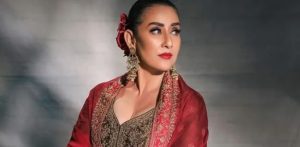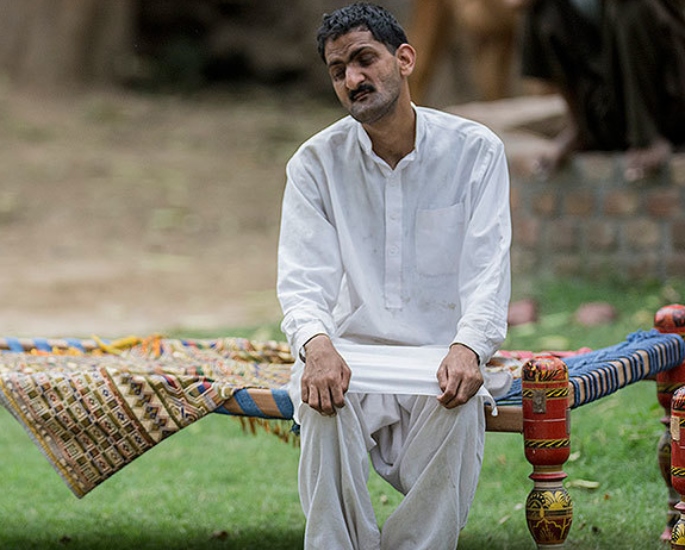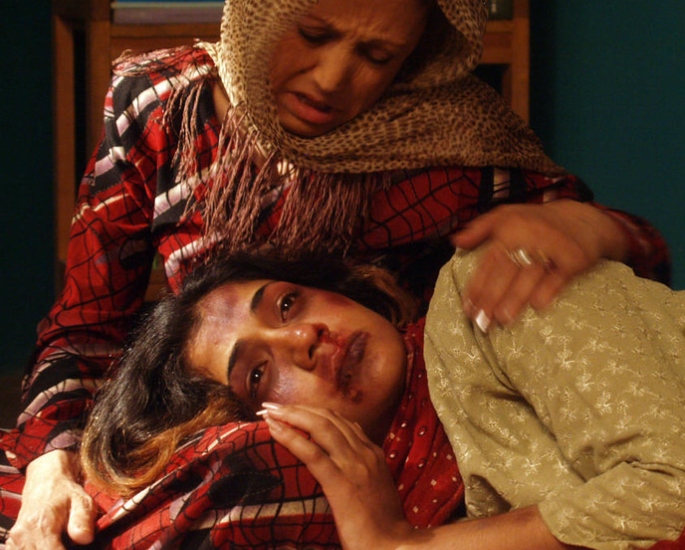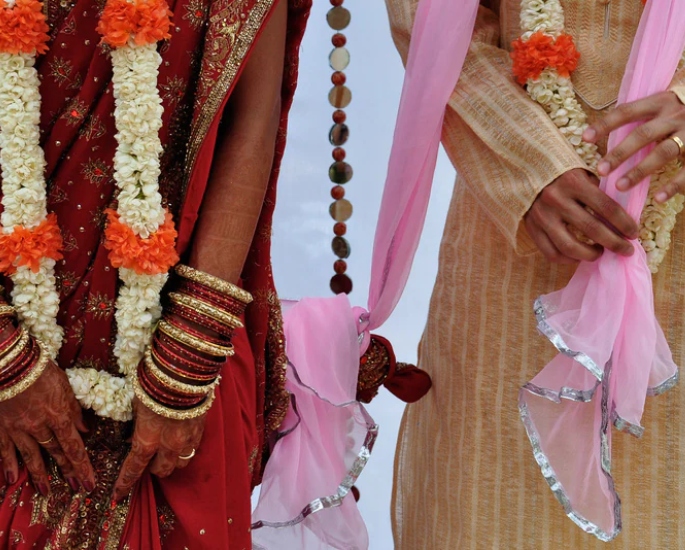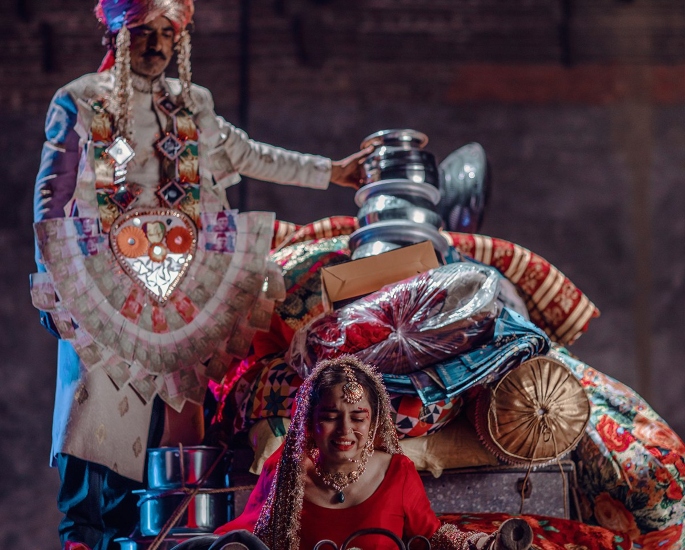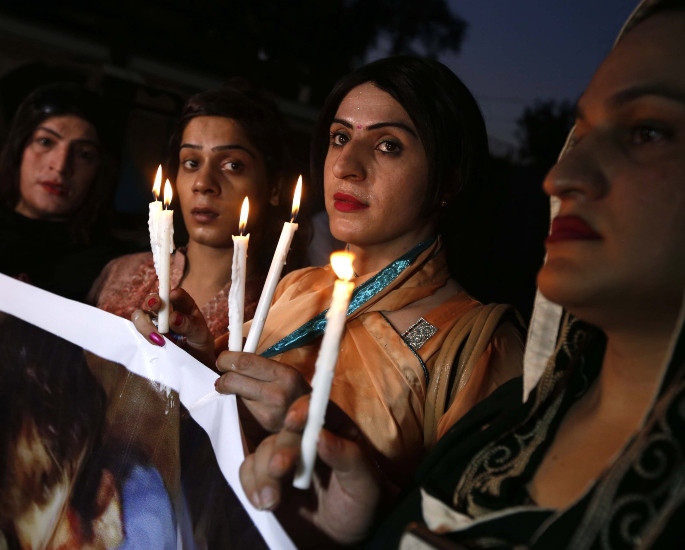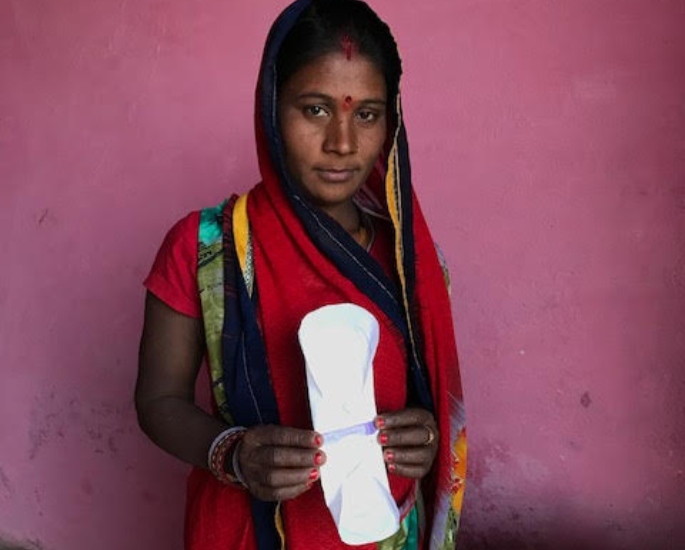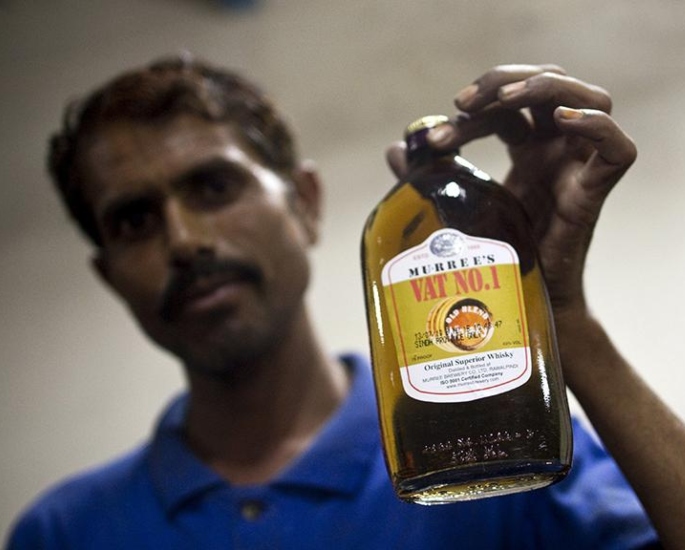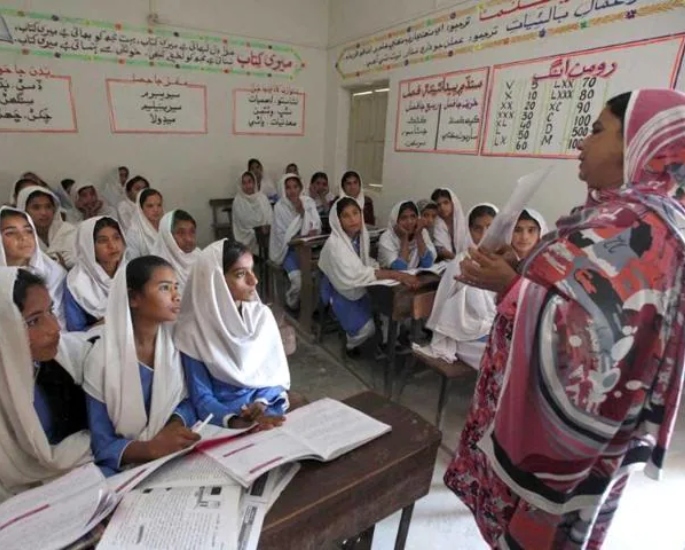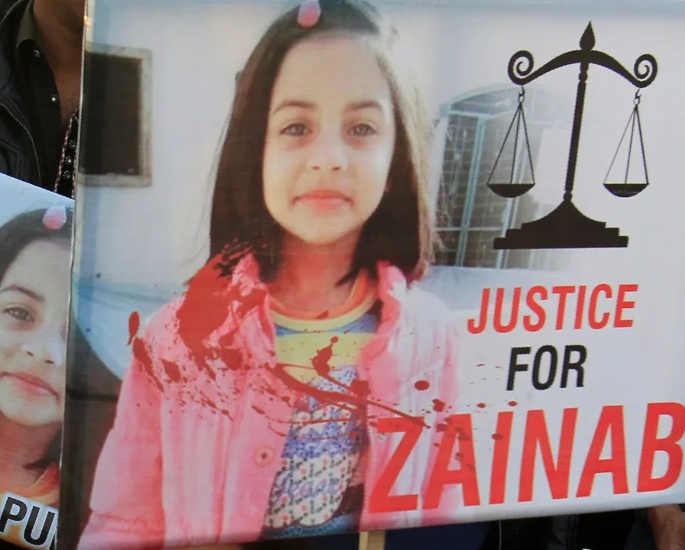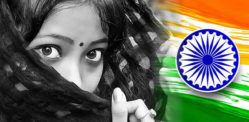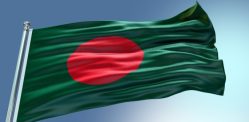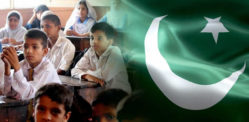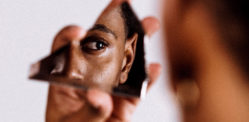"Our generation will never have the freedom to come out"
Pakistan houses some of the most modern and culturally-rich communities. However, their waves of thinking are met with taboos that still exist in the country.
Whilst it is evolving, it still falls behind other nations when it comes to development as a whole.
Certain ideologies attached to things like marriage, sexuality and equality are outdated. But, the issue is these beliefs are met with no resistance.
Likewise, if any people are vocal in opposing these values, then they face backlash from certain communities and sometimes, the authorities.
First, it’s important to identify the taboos that still exist. Second, it’s vital to note that some of these stigmas are attached to both men and women.
Then, with a younger and more determined generation questioning conservative ways of thinking, maybe longstanding progress can be made.
Mental Health
Globally, there have been massive campaigns advocating for the importance of mental health and support in modern times.
However, in Pakistan, it is not given the same priority as other problems within the country.
Often, those suffering from mental health problems do not report their symptoms fearing ridicule and/or shame.
In a 2019 study, biochemist Maheen Nisar stated:
“According to the WHO [World Health Organisation], only 400 psychiatrists and five psychiatric hospitals exist within the entire country for a population exceeding 180 million people.”
This emphasises the lack of education surrounding mental health as well as downplaying its seriousness. Nisar later highlighted this by revealing:
“Those suffering from mental illnesses are publicly mocked in Pakistan, and patients are often labelled as ‘pagal’ (crazy).”
But why should those suffering have to face such judgment?
As more people identify the illness they have, they should have the right to seek the proper aid. Also, these feelings can stem from a lot of areas.
For example, women who suffer from forced marriages, men who cannot work, and children in poverty. Mental health is much more prevalent than Pakistan may think.
However, with no resources and certainly not enough freedom to talk about mental health, it is one of the massive social taboos in Pakistan.
Domestic Violence
Domestic violence is no secret issue within Pakistan society but is still under-discussed within communities.
Both genders suffer from domestic violence but women specifically seem to feel the full brunt of this type of abuse. Especially as almost every reported case of this gets rapidly dismissed.
Female victims often don’t have a voice and their rights are snatched when it comes to domestic violence.
For example, in 2021, 30-year-old Mariam* told The Diplomat about the torture she suffered at the hands of her husband:
“I have pleaded with my brother to help me.
“He says he can’t do anything to help me because he’s happily married with four children and ready to welcome the fifth.”
“He says he isn’t ready to ruin his married life by raising his voice for me with my husband, who happens to be his father-in-law.”
In some scenarios, this heinous behaviour is justified as “keeping the women in line”.
But, these situations aren’t singular, they happen regularly.
As one of the most devastating taboos in Pakistan, people who come forward are seen as disrespectful or attention-seeking.
Likewise, victims are left on their own and sometimes the abuse can get worse.
From more beatings to potential death, the oversight of this issue scares a lot of victims if they speak out.
Forced Marriages
Forced marriages or ‘arranged marriages’ are still pungent across the board in Pakistan society.
Whilst ‘arranged marriages’ are not uncommon in South Asian culture, some are arranged without much consideration for those involved.
Normally a young girl is ‘arranged’ to get married to someone as soon as she is born. Therefore, as she gets older, she has no say in the matter.
This is so the family can keep their ‘honour’ and avoid any judgement from surrounding communities.
Also in some instances, women get married young because the groom’s family won’t expect a large dowry.
But the concept is so stigmatised because of how a woman will be treated in her married life.
Some will be abused and others will be forced to stay obedient whilst they get disrespected.
However, there are cases of men receiving the same consequences for not marrying someone they are forced to.
Love marriages are rare in Pakistan so anyone who follows this path is deemed a ‘disgrace’.
In 2020, Abdul Baqi was attacked by his father and brothers for wanting to marry a girl he was having a telephone relationship with.
Although Baqi asked the girl’s mother for her hand in marriage – which went smoothly – his father forbid it as he saw the woman as “immoral”.
Then Baqi’s family bound him, beating him with batons before gouging both of his eyes out with a spoon handle. His mother and sisters were locked in another room.
Baqi survived and he bravely came out after the assault saying:
“I can survive without my eyesight, but I can’t live without love.”
His viewpoint is the same as thousands across Pakistan, but you cannot be vocal about this mindset.
Those who speak out against this type of ‘tradition’ or challenge it, they will most likely get the same treatment as Baqi, if not worse.
Even those families who disagree with forced marriages are forced themselves to go through with this custom due to financial restraints and ‘honour’.
Divorce
Whilst divorce has risen across western countries, it is perceived as a negative process in most parts of South Asia.
Social expectations and conventional norms dictate that marriages should always uphold strong family values. Therefore, separation is seen as defiance.
But, Aizbah Khan, a writer for Bol News reported that from 2019 to mid-2020, more than 2000 women filed for divorce in Karachi alone.
Although this shows a progressive society and a rise in independence for women, it’s still seen as one of the massive taboos in Pakistan.
This is because there are backward narratives that women and men should have certain roles within a relationship. One where the woman stays at home and the man is the breadwinner.
But divorce somehow indicates that a lack of parental, maternal and masculinity is present within the individuals.
So, that’s why such stigma is attached to this process.
In some cases, divorce can be a very problematic journey as well, especially if other allegations are involved like abuse or rape.
Dowry
The dowry tradition is when the groom and his family ask for gifts ranging from money to crockery from the bride and her family.
The Pakistan Daily Times label this routine as a “great evil” as it victimises young unmarried girls whose qualities depend on their financial value.
Likewise, if the woman and her family are from a white-collar class, they can be subjected to ridicule and parents are often discouraged when a dowry is asked of them.
In 2020, multiple reports announced that the dowry exchange between a bride and groom during marriage was banned.
However, soon after this decision, Soch Fact Check, a company that reveals potentially false news stated:
“Soch FactCheck found these news reports to be false and misleading.
“All new laws that concern the entire country have to be passed by the National Assembly (NA). However, no such records of a new law exists on the NA’s website.”
Regardless of the legitimacy of the dowry ban, rules and regulations are rarely enforced anyway. This is risky for more women as there is no safety net for them to fall on.
The reason why this issue is brushed under the carpet is due to the extreme torture and even death that can occur with a dowry.
For example, in 2015, a man shot his fiance and her nine relatives over a dowry dispute in Khyber Pakhtunkhwa.
In the same year, 25-year-old Takreem was forced to drink acid three weeks into her marriage for an ‘insufficient dowry’.
Following this in 2017, 22-year-old Madiha was drenched in petrol and burned to death because she didn’t include a motorbike in her dowry.
Even in 2021, 18-year-old Sakila was strangled by her husband and his family for failing to bring a dowry of gold earrings.
In cases like these, individuals are too afraid and communities are too reluctant to discuss the scale of this issue.
LGBTQ
LGBTQ communities across the world have had an up and down journey in modernising thoughts, ideologies, acceptance and removing the stigma attached to them.
In Pakistan, sexual identity is refined to a man and woman and nothing beyond. This makes it one of the most controversial taboos in the country.
LGBTQ covers the unparalleled spectrum of sexuality which is not understood by most of the Pakistan society.
So, most of those who identify as LGBTQ in Pakistan have created a sphere for themselves where they can exist and protect one another.
But, it is this isolation that this community is forced to adhere to. Families are judgmental and others view LGBTQ individuals as defiant and ‘ambiguous’.
In 2013, Pew Research reported that 90% of Pakistan’s population believed homosexuality is morally wrong, although 1% said it is morally acceptable.
It’s this harsh narrative which has spread across most communities.
LGBTQ people can also face massive discrimination when it comes to things like housing, employment and healthcare.
This feeling is enhanced by the lack of protection and acknowledgement given by the Pakistan government.
There are no civil rights laws to block harassment on the basis of sexual orientation.
Additionally, same-sex marriages are not permitted under the law and are rarely brought up during political discussions.
Neighbouring India made a massive leap in 2018 by legalising homosexual intercourse. However, the decision left a sour taste for those part of LGBTQ Pakistan.
Regarding India’s decision, Sasha, a cisgender bisexual artist living in Lahore told The Diplomat in 2021:
“I felt uncomfortable. Uncomfortable that something so taboo in Pakistan is being accepted in a neighbouring country.
“I felt a glimmer of hope for not me but maybe generations down when Pakistan will be as old as India, maybe then we might be accepted.”
“This made me sad that our generation will never have the freedom to come out of the shadows.”
Sasha’s words highlight just how unaccepted the LGBTQ community is in Pakistan but also how scared they are about their livelihoods.
Period Taboo
Menstrual cycles and periods specifically are a common taboo across Pakistan, especially in rural areas.
For example, the women of Buni located in northwest Pakistan had no clue what sanitary pads were. Instead, they used rags or cloths to soak up their menstrual blood.
But the problem with this and similar parts of Pakistan is that these materials are a breeding ground for bacteria. Additionally, it highlights a lack of openness about this topic.
Many women feel uneasy when trying to buy sanitary pads and either opt to buy them at night or ask their husbands to purchase them.
In some shops, the pads are also wrapped in opaque paper to disguise the contents. Therefore, women feel ‘dirty’ or ashamed if they are menstruating and try to avoid discussing it at all.
This stems from the lack of education surrounding periods.
In 2017, UNICEF reported that 49% of young girls in Pakistan had no knowledge of menstruation prior to their first period.
Additionally, “the results further revealed that 23% of girls would most like to learn about menstruation in school”.
Education is one thing but cultural ideals are another. The social stigma ridicules a woman for normal bodily functions.
The judgment placed upon women and unfairly seeing them as ‘impure’ makes them feel guilty and takes away their dignity.
It also forces them to keep hushed on the topic, especially around men. For example, Hafsa, a Pakistani mother told DAWN in 2021:
“I never told my boys [about periods]. When they were young it was considered behayai (obscene).
“Now [that] they are grown up, I am sure they know about it but don’t want to associate any such thing with their mother.”
However given the turmoil women have had to go through to modernise the outlook of periods, progress is coming.
In 2020, Saba Khalid created the animated chatbot, Raaji.
Using artificial intelligence and preprogrammed content, it educates young girls on menstruation and answers any questions regarding the topic.
Alcohol
As a predominantly Muslim country, alcohol is illegal in most areas of the country. However, secret consumption from both men and women has seen a surge.
Pakistani novelist, Mohammed Hanif, is quoted in the New York Times as saying:
“In Pakistan, drinking alcohol is prohibited and talking about it is taboo…
“…Drinking and denying it is the oldest cocktail in the country.”
This was made especially clear during the Covid-19 pandemic when a shortage of booze was met with anxiety.
Whilst areas like Rawalpindi and Karachi supply alcohol openly to foreigners, the black market is the go-to place for locals to get their fix.
However, those with a low income have to opt for cheaply produced moonshine which can have adverse effects on one’s health.
AFP Tally reported in 2020 that by April, 29 people had died from drinking bootleg liquor.
But, like many industries within Pakistan, money is the main factor over product quality.
In addition, as alcohol is such a massive stigma in the country, many don’t question what they are buying and often overpay.
38-year-old journalist, Hira, told the German media outlet, DW, that she bought a bottle of ‘Black Label’ whiskey which was overpriced and actually watered down.
So, this is a money-making scheme for many Pakistani residents. But the trade they are in requires them to keep things hush.
Even in Sindh, licensed shops called ‘wine stores’ are only supposed to sell to non-Muslims. Although, they don’t discriminate and sell to locals too.
Often, shop owners have to bribe the police to avoid being closed down.
Sexual Education
Whilst education and access to it needs overall improvement in many Pakistan communities, sexual education is by far one of the most stigmatised topics in the country.
With such a high rate of sexual crimes, even against minors, teaching children about sex is considered a major taboo.
Globally, many people think some form of sex education is needed in schools or public campaigns to protect young individuals.
They believe it helps in informing the youth about avoidable pregnancies, STIs and normal sexual behaviour.
However, this type of dialogue is almost forbidden in Pakistan.
Most communities in the country criticise these types of conversations due to misconceptions, especially when talking about sexual protection.
In 2019, DW News interviewed a local community health worker in Sindh who highlighted this, saying:
“People are more aware of family planning these days. But they’re often reluctant because there are myths and misconceptions about using contraceptives.
“Some women are afraid it will make them infertile forever.”
Additionally, a 2018 study by Asim Shaikh and Rohan Ochani about the misconceptions of men about sexual practices found:
“An overwhelming 94% of the respondents agreed to have masturbated yet 31.4% of them believed it caused physical illnesses and there was a high prevalence (76%) of its association with guilt.
“Such misconceptions most likely arise from the fact that no form of sexuality education is provided in public schools in Pakistan.”
But, the importance of sex education is much bigger than this, especially being aware between right and wrong.
Molestation, foreplay, consent, rape and abuse are all topics shunned within Pakistan. But legal cases regarding these happen frequently.
Whilst some of these events are out of forced exploitation, especially with children, others stem from a lack of sexual awareness/education.
Child Abuse
One of the most discussed and controversial taboos in Pakistan is related to child abuse.
Children are sexually abused across the country and at a vast rate. However, because some of these kids are so young, they are unable to comprehend what is going on.
In other scenarios, victims often don’t report any abuse out of shame, fear and backlash. Some extreme instances of abuse can go as far as death.
For example, Muhammed Faizan, an 8-year-old boy was found dead two miles from his house after he was raped.
In 2020, 12-year-old Zain Qureshi was shot when he resisted three people who were trying to rape him.
Some findings in 2021 by Sahil, a foundation against child sex abuse are staggering:
- 3852 reported cases of child sex abuse, abduction, child marriages, and missing children (although the actual overall figure is much higher).
- More than 10 children abused per day in 2021.
- 54% of victims were girls and 46% were boys.
- The reported age shows children between 6-15 years are most vulnerable. Children as young as 0-5 are also sexually abused.
- The findings indicate acquaintances of the children are the most involved in child sex abuse.
Abusers normally threaten their victims with death or punishment if they intend to tell anyone. Given a child’s fragile mind, they often stay silent.
Likewise, children are ridiculed, blamed or even called liars – especially if the abuse comes from a family member.
But this all comes from how stigmatised the problem is. Although, in the case of Zainab Ansari, things are set to change.
In 2018, seven-year-old Zainab went missing. Her body was found five days later in a pile of trash.
Her 24-year-old neighbour, Imran Ali, was convicted of her murder after CCTV footage showed the little girl walking off with him.
As well as Zainab’s, Imran’s DNA had matched with eight other girls’ bodies.
Sparking major protests and retaliation, the Pakistan parliament passed a law against child abuse in 2020.
The first of its kind, the law introduces a life improvement penalty for child abuse.
Whilst this taboo is on its way to being properly addressed, other taboos in Pakistan aren’t.
The country needs an overhaul of laws and legislation to protect those who are most vulnerable. However, cultural perception is what needs to change the most.
Most of these taboos and the history around them come from decades of false narratives and misconceptions.
Also, a lack of acceptance of these issues means there is a massive fear factor for those who want to voice their concerns.
Pakistan instead punishes those who simply challenge these stigmas and want the country to progress.
Therefore, how is true change supposed to happen?
Hopefully, with the help of protests, social media and more modern generations, a flame will ignite to abolish these taboos from Pakistan society and culture.












